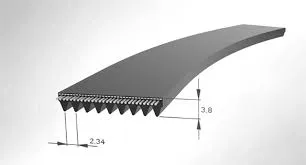- Arabic
- French
- Russian
- Spanish
- Portuguese
- Turkish
- Armenian
- English
- Albanian
- Amharic
- Azerbaijani
- Basque
- Belarusian
- Bengali
- Bosnian
- Bulgarian
- Catalan
- Cebuano
- Corsican
- Croatian
- Czech
- Danish
- Dutch
- Afrikaans
- Esperanto
- Estonian
- Finnish
- Frisian
- Galician
- Georgian
- German
- Greek
- Gujarati
- Haitian Creole
- hausa
- hawaiian
- Hebrew
- Hindi
- Miao
- Hungarian
- Icelandic
- igbo
- Indonesian
- irish
- Italian
- Japanese
- Javanese
- Kannada
- kazakh
- Khmer
- Rwandese
- Korean
- Kurdish
- Kyrgyz
- Lao
- Latin
- Latvian
- Lithuanian
- Luxembourgish
- Macedonian
- Malgashi
- Malay
- Malayalam
- Maltese
- Maori
- Marathi
- Mongolian
- Myanmar
- Nepali
- Norwegian
- Norwegian
- Occitan
- Pashto
- Persian
- Polish
- Punjabi
- Romanian
- Samoan
- Scottish Gaelic
- Serbian
- Sesotho
- Shona
- Sindhi
- Sinhala
- Slovak
- Slovenian
- Somali
- Sundanese
- Swahili
- Swedish
- Tagalog
- Tajik
- Tamil
- Tatar
- Telugu
- Thai
- Turkmen
- Ukrainian
- Urdu
- Uighur
- Uzbek
- Vietnamese
- Welsh
- Bantu
- Yiddish
- Yoruba
- Zulu
Nov . 25, 2024 20:04 Back to list
Understanding Car Timing Belts and Their Importance for Vehicle Performance
The Importance of Timing Belts in Cars
The timing belt is one of the most critical components in modern automotive engineering. Its primary function is to synchronize the rotation of the crankshaft and the camshaft, ensuring that the engine’s valves open and close at the appropriate times during each cylinder’s intake and exhaust strokes. However, many car owners are often unaware of the vital role this seemingly humble rubber band plays in their vehicle's operation.
The Importance of Timing Belts in Cars
Most manufacturers suggest replacing the timing belt every 60,000 to 100,000 miles, though this can vary depending on the specific make and model of the vehicle. Neglecting to replace a worn timing belt can result in it snapping, which can lead to catastrophic engine damage. In interference engines, a broken timing belt can cause the pistons to collide with the open valves, often resulting in bent valves, damaged pistons, or even more extensive engine repairs that can be incredibly costly.
timing belt for cars

The process of replacing a timing belt can be labor-intensive, often taking several hours and requiring special tools. It’s not just the belt itself that may need attention; associated components such as the water pump, tensioners, and idler pulleys should also be inspected and potentially replaced during the timing belt service. This preventive maintenance can save car owners from future headaches and expenses.
Additionally, car owners should be mindful of signs that may indicate timing belt issues. Unusual noises such as ticking or grating may suggest that the belt is worn out or misaligned. Moreover, if the engine exhibits a loss of power or struggles to start, it might be a sign that the timing belt has failed. In such cases, it is essential to consult a qualified mechanic promptly.
The timing belt is a prime example of a component that is often overlooked until something goes wrong. Education about when and why to service a timing belt is crucial for maintaining vehicle reliability and performance. Regular maintenance checks and adhering to the manufacturer's recommended service intervals can make a significant difference in the longevity of an engine.
In conclusion, the timing belt plays a vital role in the overall function and longevity of a vehicle's engine. Understanding its importance can help drivers avoid severe engine damage and expensive repairs. By staying informed and proactive about timing belt maintenance, car owners can ensure their vehicles continue to perform smoothly for years to come. It’s a small investment of time and money, but one that pays off significantly in the long run.
-
Korean Auto Parts Timing Belt 24312-37500 For Hyundai/Kia
NewsMar.07,2025
-
7PK2300 90916-T2024 RIBBED BELT POLY V BELT PK BELT
NewsMar.07,2025
-
Chinese Auto Belt Factory 310-2M-22 For BMW/Mercedes-Benz
NewsMar.07,2025
-
Chinese Auto Belt Factory 310-2M-22 For BMW/Mercedes-Benz
NewsMar.07,2025
-
90916-02660 PK Belt 6PK1680 For Toyota
NewsMar.07,2025
-
drive belt serpentine belt
NewsMar.07,2025

